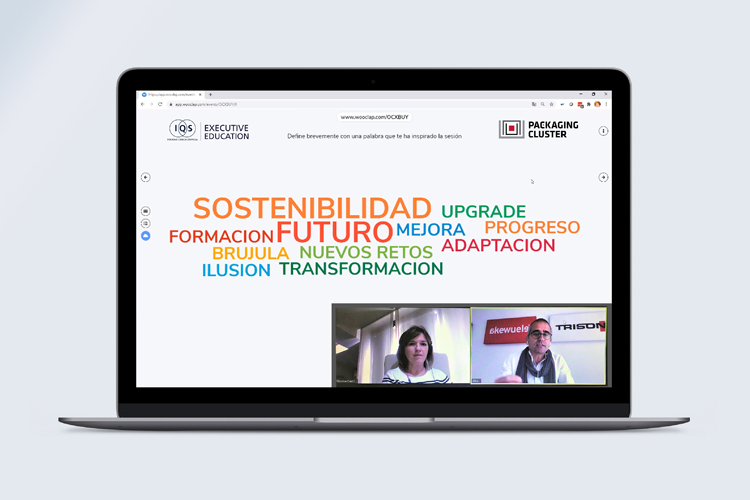78% of consumers maintain their environmental concerns despite the health crisis caused by COVID-19.
IQS Executive Education and Packaging Cluster discussed the state of the sector in a virtual meeting.

The packaging industry must make a commitment to sustainability within the new context caused by COVID-19. This is the main conclusion of the virtual conference with experts from the world of packaging regarding the challenges the sector faces within the current context. The conference was organized by IQS Executive Education, the IQS division dedicated to the specialized training of professionals, and Packaging Cluster, an entity created in 2012 that brings together more than 100 companies, knowledge centres, and entities from across the sector in Catalonia.
The event helped to share how sustainability has affected the main companies in the sector, as well as highlighting that environmental issues will continue to be among the main aspects that must be addressed within companies, despite the fact that social and economic issues will also grow in importance.
Packaging strategy has become very important, especially with regards to having rigorous information to share with consumers. Moreover, it's also an aspect that concerns consumers.
The latest AECOC Shopperview study shows that 78% of consumers consider sustainability an important aspect. In this sense, the concern for sustainability has increased during the pandemic. 23% of consumers place more importance on buying brands and products that are sustainable and socially responsible, while 70% give it the same importance as before. Likewise, 82% of consumers are demanding more responsibility concerning the environment and reducing product packaging, and 80% are asking for more sustainable actions.
Sustainability is also an opportunity for companies. Regarding shopping experiences in recent months, it was found that 37% of consumers want to buy packaged products because they believe that they protect food better: “As part of the new normal, there will be a dichotomy between packaged goods and purchases at the counter. 27% of people will buy more packaged fruits and vegetables, rather than bulk, and regarding meat and fish, 21% will buy more packaged products rather than at the sales counter,” explained Cinta Bosch, the head of sustainability at AECOC.
Packaging training, essential within the new context
The new edition of the IQS Executive Education Master in Packaging Management was also presented at the event. The university centre also offers a Postgraduate Diploma in Packaging Management, as well as Postgraduate diplomas in Design and Development and in Packaging Industrialization, designed for people who already work in the sector. These courses work on essential cross-cutting areas for professionals in the sector, ranging from business organization to finance and communication skills with internal and external teams.
Montse Castillo, director of the Master in Packaging Management at IQS, stressed the high specialization of the programme, a key aspect in the new normal: “Our professors are not only teachers, but are also professionally dedicated to each area of the programme they teach. This allows us to anticipate the future and allows us to be more flexible and adapt to situations like the current one,” she asserted.
Àlex Brossa, Cluster Manager of Packaging Cluster, added: “This training is fundamental and extremely important. The sector has excellent growth prospects in upcoming years.”










